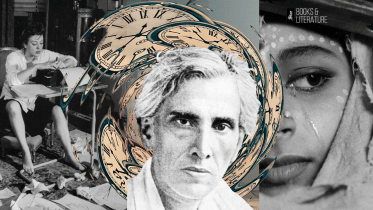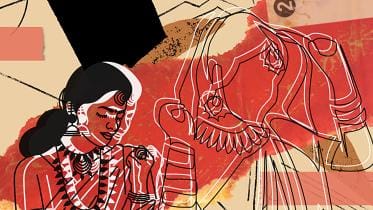Sarat Chandra Chattapadhyay
When old patriarchies wear new faces
To understand the deep-seated relevance of this modern debate, we must embark on a journey into the heart of Sarat Chandra’s literature, where these battles first found voice.
25 November 2025, 12:57 PM
Mithila starrer film ‘O Abhagi’ releases today
Srijit Mukherji wrote on his social handle, “‘O Abhagi’ is a beautiful and sensitive interpretation of a Sarat Chandra classic with a solid ensemble led magnificently by Rafiath Rashid.”
29 March 2024, 09:45 AM
The progressive depiction of women in ‘Devdas’
In some ways, Sharatchandra places the blame for Devdas's ensuing sorrow on his lack of courage, made all the more noticeable in comparison to Parbati's courage in breaking social norms despite the dire consequences it could have for her.
17 November 2023, 18:00 PM
Rethinking Sarat Chandra Chattopadhyay, the humanist
Despite his caste-consciousness and critical depiction of the social prejudices of colonial Bengal, he never directly opposed them; in his real life, he was an upholder of traditional Hindu patriarchy and Brahmin-dominated caste society.
15 September 2023, 14:00 PM
[WATCH NOW] How Rabindranath saw Nazrul
When Kazi Nazrul Islam was born in 1899, the rays of Robi (Bangla for sun) had already reached distant corners of Bangla literature. Nazrul himself was a great fan of Rabindranath. Nazrul sent his poem 'Tirtho-Pothik' to Rabindranath expressing his awe and excitement at his writing and for being remembered by him. Rabindranath, in turn, welcomed Nazrul's powerful arrival in Bangla literature and blessed him on the publication of his first bi-weekly literary publication Dhumketu, expressing confidence in Nazrul's ability to banish darkness and awaken people with his writings.
10 November 2015, 07:28 AM




